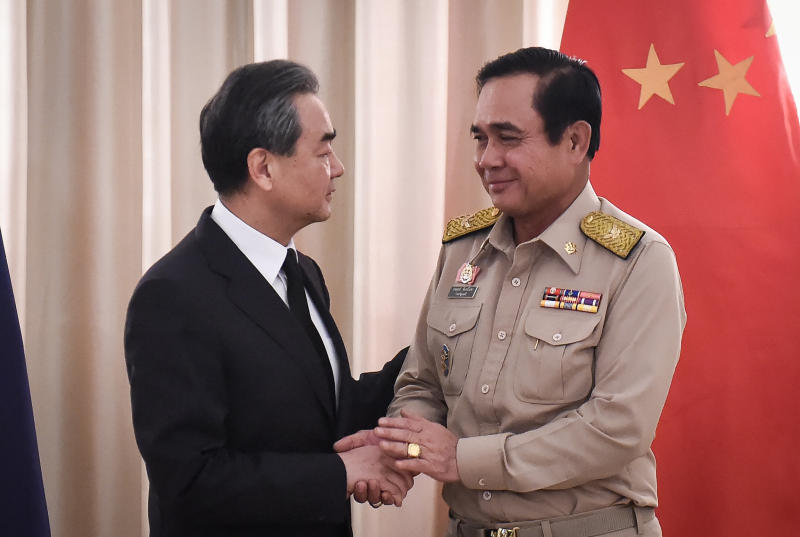
Thailand and China have pledged there will be no u-turn on a long-delayed train project and promised cooperation on the Eastern Economic Corridor (EEC) scheme.
Chinese Foreign Minister Wang Yi said he hoped the rail project would "elevate" Thailand's status in the region and said that the two countries would overcome differences to bring the rail project to fruition.
Thailand and China are set to build the 179-billion-baht train project linking Bangkok and Nakhon Ratchasima after Prime Minister Prayut Chan-o-cha executed Section 44 of the interim constitution to end the delay last month.
The route to Nakhon Ratchasima will be extended to Nong Khai in the future. Plans call for it to link with another train line under construction from southern China to Laos.
Thailand and China have mooted the train project since 2014 but progress has been slow, hampered by unsettled issues including loans and technological transfer.
Mr Wang, who was on a two-day visit to Thailand that ended Monday, said: "China and Thailand are like brothers."
During a meeting with the prime minister at Government House, he also showed interest in investing in the EEC, the government said in a statement.
The EEC is envisaged as a new industrial zone in the eastern provinces driven by high technology.
The train and economic schemes are in line with China's ambitious One Belt One Road policy aimed at expanding Beijing's economic clout to other countries through infrastructure investment.
Gen Prayut stressed that China is a key partner that remains confident in the kingdom and understanding of its political situation.
Addressing the South China Sea issue, Mr Wang told reporters China would like to "maintain stability in the South China Sea, abiding by the terms that have been agreed in the Declaration of Conduct and Code of Conduct in the near future".
The United States has criticised China for disregarding international law by the construction and militarisation of artificial islands in the South China Sea, undermining regional stability.
China claims most of the energy-rich sea through which about US$5 trillion in ship-borne trade passes every year.
Neighbours Brunei, Malaysia, the Philippines, Taiwan and Vietnam also have claims. Thailand is not a claimant state in the dispute and has maintained a neutral stance on the topic.
China and Southeast Asian countries agreed in May to a framework for a long-proposed code of conduct for the disputed waters.
Foreign Minister Don Pramudwinai praised Thai-Chinese relations, saying there were "no obstacles" to the relationship between the two.